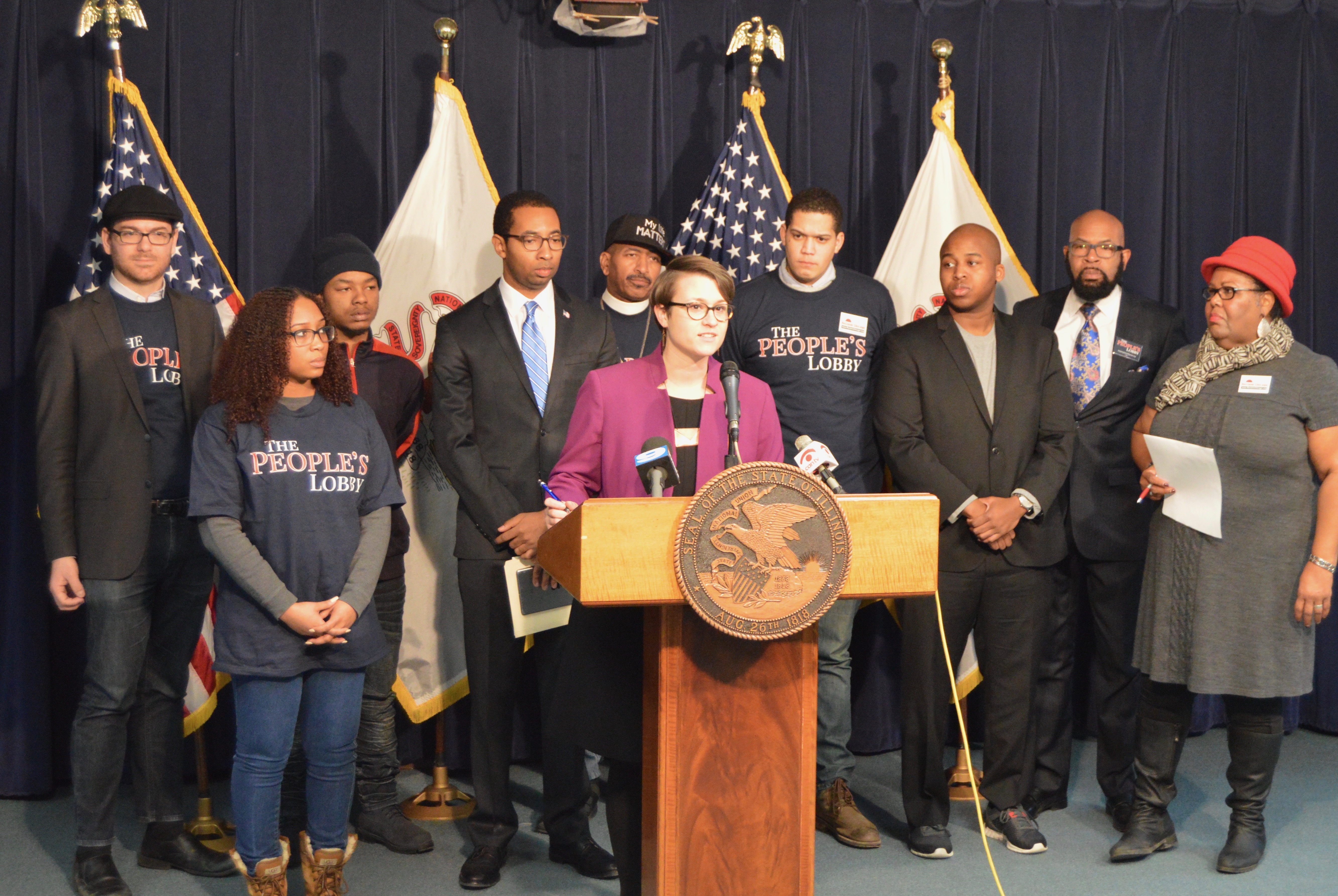Legislation Introduced to Eliminate Monetary Bond in Illinois

Last night, Representative Christian Mitchell introduced HB 3421, the Equal Justice For All Act. This morning, Chicago Appleseed’s Senior Policy Analyst and Staff Attorney Sharlyn Grace spoke at a press conference unveiling the bill organized by The People’s Lobby and Representative Mitchell’s Office.
HB 3421 is a comprehensive bail reform bill that would eliminate the use of monetary bond in Illinois. You can read a one page summary of the bill here. In introducing the bill, Rep. Mitchell said:
“The presumption of ‘innocent until proven guilty’ is a cornerstone of the American judicial system. Incarceration before trial is a violation of due process of law and has devastating consequences for communities all across this state. In our current system, whether or not someone is in jail has more to do with whether they are poor, than whether or not they are a threat to the peace. Our jails have become, as President Preckwinkle has often said, the intersection between racism and poverty in this state and in this country. The time to end this discriminatory and wasteful practice is now.”
HB3421 does three primary things:
- Prohibits the use of monetary bonds in Illinois, so that poverty is no longer the deciding factor in whether or not someone remains in jail while awaiting trial;
- Creates a presumption that people charged with non-violent offenses are released on their own recognizance, and provides for pretrial services to facilitate court appearances; and
- Preserves existing judicial discretion to order detention or electronic monitoring for people found to have a specific risk of harming others.

After Representative Mitchell introduced the bill, Tyler Smith from the Chicago Community Bond Fund spoke about his experience being on home confinement for 7 months because he could not pay his $2,500 bond to get off of electronic monitoring. House arrest caused Tyler to lose both of his jobs and prevented him from getting new ones. He and his mother were on the brink of losing their home when CCBF posted his bond. Last December, 17 months after he was arrested, the charges against Tyler were dismissed.
Chicago Appleseed has been working to reform Cook County’s bond court since 2005. Our 2011 study of central bond court found that the average bond hearing lasted just 37 seconds, and that most hearings were completed in just 20 to 30 seconds. In less than a minute, judges determine whether someone will be released or incarcerated while their case proceeds. Felony cases in Cook County often take a year or more to resolve. Defendants who cannot pay their monetary bonds languish in the jail at great cost to taxpayers, and with terrible impacts on their own lives.
Illinois can and must do better. People charged with crimes are presumed innocent; their liberty should not be taken away lightly, and certainly not because they are unable to pay a certain amount of money to get out of jail. We must end the use of money bail and dramatically reduce our reliance on pretrial incarceration and other forms of surveillance and control for people who have been merely charged—and not convicted—of crimes.
Chicago Appleseed has been supporting The People’s Lobby and Representative Mitchell in developing the Equal Justice for All Act since the summer of 2016. If you would like to read the press release sent out by The People’s Lobby with more facts about Cook County Jail and the impacts of monetary bond, you can find it here.

